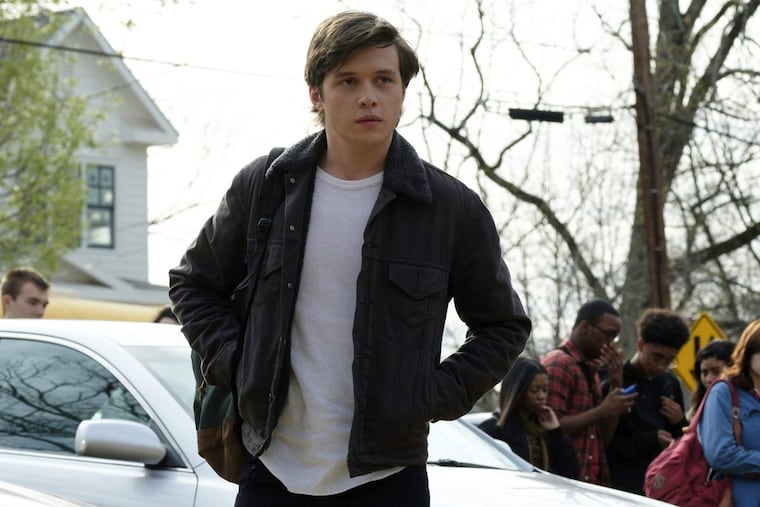'Love, Simon': A teen's coming out story. Too bad he's so bland
'Love, Simon' blends an homage to the John Hughes teen movies with an inclusive story about a gay teen (Nick Robinson) coming out.

Love, Simon positions itself as the kind of cheerful, mainstream PG-13 teen love story that Hollywood has been cranking out for years, with the groundbreaking exception that its title character is gay.
Simon lives in a posh but tasteful home, loves his adorable kid sister and his perfect parents (Jennifer Garner and Josh Duhamel). At school, he's on good terms with the entire student body, including the principal (Tony Hale).
Simon, neither fast nor furious, drives a Subaru station wagon, which he uses to pick up his friends and purchase Starbucks beverages at the drive-through. They bob their heads and listen happily to songs by the Bleachers, a band dedicated — like the movie — to reviving the John Hughes aesthetic of the 1980s.
As we watch this safely-under-the-speed-limit parade of lumpen suburban regularness, though, we begin to wonder if director Greg Berlanti (TV's Arrow and Riverdale) has emphasized sexuality at the expense of personality. This kid makes Ferris Bueller look like a dangerous radical.
Speaking of Bueller, Simon talks a lot, often directly to us. He gives a disarmingly comic monologue about his sexual orientation, a secret that he intends to share with friends and family, as soon as he can find the right words or setting.
The title refers to his epistolary relationship with a fellow student, also in the closet, also on the verge of coming out. The two exchange anonymous emails, and as the messages grow more frequent and more intimate, Simon falls in love, and makes subtle efforts to learn the writer's identity.
This becomes complicated when another student guesses Simon's secret, and blackmails him — demanding that Simon arrange a date with his beautiful friend (Alexandra Shipp). This is a contrived subplot, but it does encourage Simon to assert himself — he's confused about a lot of things, but knows that he is entitled to be in charge of his own story, to come out on his own terms.
Few are surprised by Simon's secret, although someone close to him says she noticed that his mood had darkened in recent months. It had? You mean there was a time when he was even happier and more well-adjusted?
All in all, he's a pretty fortunate fellow. There is a brief moment when Simon endures a dark afternoon of the soul, and is forced to go to Starbucks by himself, but not to worry. The movie sends him on his way with an inevitable standing ovation.